In Ancient Greece, professional performers of Homer were called Rhapsodes.
Their job was to memorize Homeric poetry and perform at festivals. With our annual contest, we honor their tradition and that of Bill Mullen, a former professor of Classics and Rhetoric at Bard College. On April 19th, 2024 we will we gather with Bard students, faculty and staff to listen to student contestants recite poetry by heart. Join us!
-
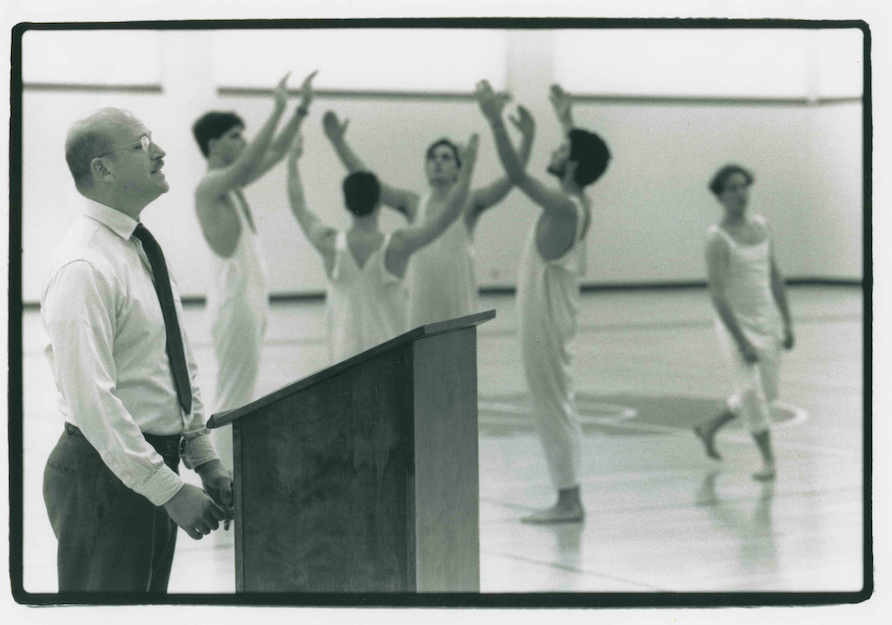 William C. Mullen Memorial FundIn 2021, Bard College announced the William C. Mullen Memorial Fund created by a generous donation from longtime Bard professor, Bill Mullen. This fund is used to promote his legacy through grants to any of Bill's former students to continue their studies in the liberal arts and sciences. William “Bill” Mullen (1946-2017), professor of classics and taught at Bard until his death.
William C. Mullen Memorial FundIn 2021, Bard College announced the William C. Mullen Memorial Fund created by a generous donation from longtime Bard professor, Bill Mullen. This fund is used to promote his legacy through grants to any of Bill's former students to continue their studies in the liberal arts and sciences. William “Bill” Mullen (1946-2017), professor of classics and taught at Bard until his death.
William C. Mullen Memorial Fund
In 2021, Bard College announced the William C. Mullen Memorial Fund created by a generous donation from longtime Bard professor, Bill Mullen. This fund is used to promote his legacy through grants to any of Bill's former students to continue their studies in the liberal arts and sciences. William “Bill” Mullen (1946-2017), professor of classics and taught at Bard until his death. Bill came to Bard as associate professor of classics in 1985, and was promoted to full professor in 1989. He served as chair of the Presidential Commission on the Curriculum from 1990 to 1993. During his tenure, he introduced Rhetoric and Public Speaking to the Bard curriculum and was instrumental in the development of the Classics Program and First-Year Seminar, which he directed from 1987 to 1990. He started what is now known as the West Point–Bard Exchange, which began as an educational seminar between West Point and Bard. He introduced the teaching of rhetoric to the Bard Prison Initiative and brought The Readers of Homer (a nonprofit organization that provides a method for reading Homer’s epics aloud in a continuous audience-participation format) to Bard. In 2013–14, he served as Distinguished Visiting Professor at the United States Air Force Academy, an honor of which he was particularly proud. He brought to Bard his special interest in Greek and Latin epic and lyric poetry and the classical tradition in Western civilization. Bill Mullen was an exemplar of the commitment to liberal education. Perhaps because he came to Bard directly from St. John’s College in Annapolis he cherished the inherent interdisciplinary character of the classics and believed deeply in the proposition that all students should avail themselves of a wide-ranging curriculum. Bill mirrored the nobility and honor of the vocation of scholar and teacher. -
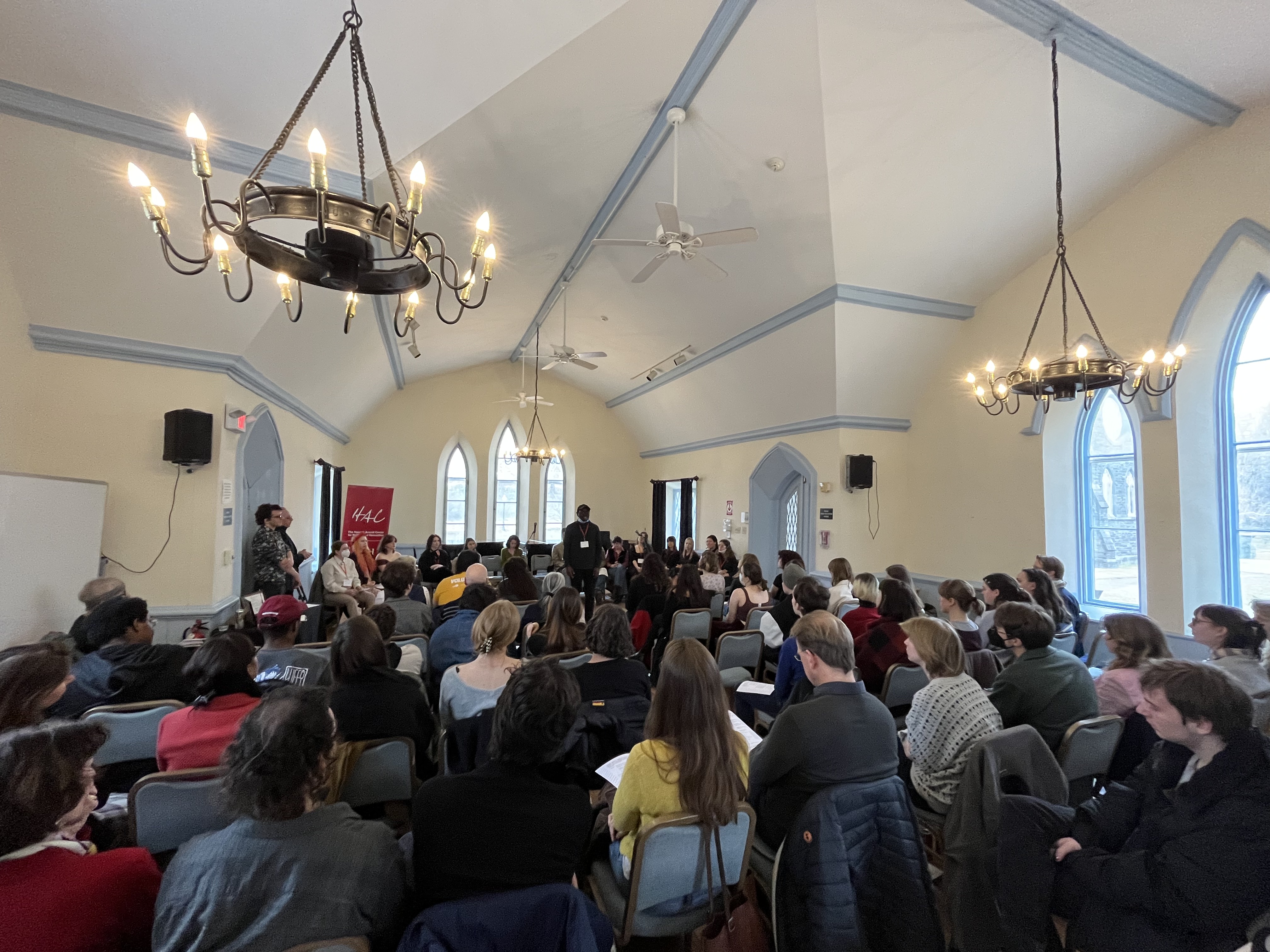 What is the Recitation Contest?The Bill Mullen Recitation Prize is awarded annually in competition amongst Bard College and BHSEC Cleveland students. The competition encourages the love of literature, the joy in oral recitation, the committing to memory of great poetry, the love of public speaking, and the agonal spirit, all of which are at the heart of Bill Mullen’s intellectual legacy. The contest aims to expose students to- and perhaps instill a love for- the art of memorizing and reciting poetry. The 2023 Competition took place at Bard Hall on March 10th, and was judged by Ann Lauterbach and Thomas Bartscherer. See more details below.
What is the Recitation Contest?The Bill Mullen Recitation Prize is awarded annually in competition amongst Bard College and BHSEC Cleveland students. The competition encourages the love of literature, the joy in oral recitation, the committing to memory of great poetry, the love of public speaking, and the agonal spirit, all of which are at the heart of Bill Mullen’s intellectual legacy. The contest aims to expose students to- and perhaps instill a love for- the art of memorizing and reciting poetry. The 2023 Competition took place at Bard Hall on March 10th, and was judged by Ann Lauterbach and Thomas Bartscherer. See more details below.
-
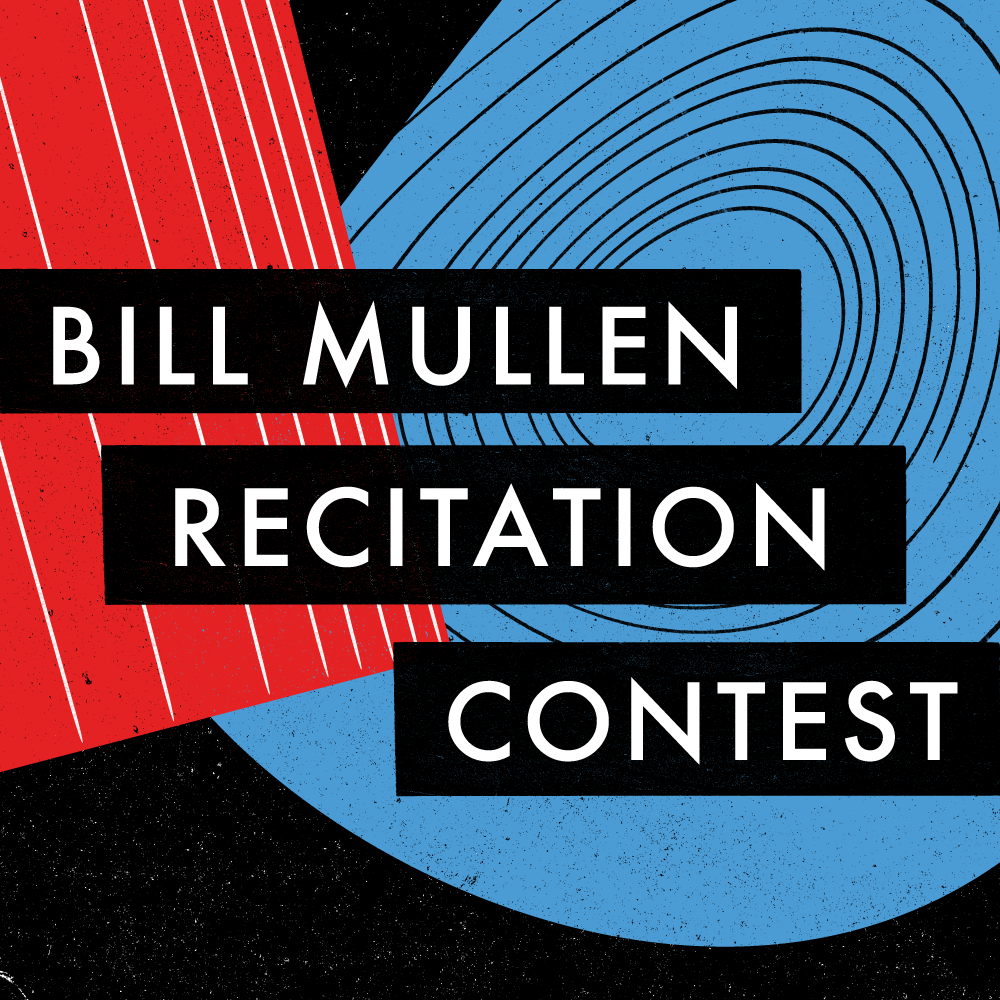 On being his student“It was impossible to miss Bill on campus and especially in Aspinwall, where his office was a constant source of laughter and his careful diction echoed through the third floor."
On being his student“It was impossible to miss Bill on campus and especially in Aspinwall, where his office was a constant source of laughter and his careful diction echoed through the third floor."
Christian Lehmann is a Professor of Literature at Bard High School Early College,
Cleveland, and a former student of Mullen'sOn being his student
“It was impossible to miss Bill on campus and especially in Aspinwall, where his office was a constant source of laughter and his careful diction echoed through the third floor. My relationship with him began in earnest the spring of 2007, my Junior year, as I began to plan for moderation. I had spent my time in the lower college learning Latin, German, and Old English, and Bill and I knew each other socially. But over the summer of 2007, I knew that I wanted to dedicate the rest of my time at Bard to studying the transhistorical and geographical genre of Epic poetry. My advisor recommended that I seek out Bill, and so one day after a lecture in Olin Hall, I caught up with him in the atrium and asked if we could talk about Indo-European epic. And thus began a friendship that extended past my graduation at Bard and well into my graduate studies at USC.
Bill’s dedication to the recitation of poetry inspired me to make a performance out of my upper-college research work. In addition to writing my senior project on Homer’s Iliad, I organized a performance in Bard Hall where I had friends recite passages of women’s laments from across the genre of epic poetry. In the days leading up to the event, Bill expressed enthusiasm, and on the day of the performance, he was in the front row. At the end, I made a mixture of a healing wine drink that is described in the Iliad, cheese and spices grated into a bowl of wine. I offered it to the audience, and Bill was the first to drink deeply, and he told me how the muses had sung that evening.
Once I graduated, I would still see Bill regularly. Every summer, he would come out to stay for a few weeks in LA and we would meet up for drives to exhibits, to read poetry we had discovered, and to share a meal. When I would visit Bard, I would stay with him, and we would pull volumes off the shelves to read in the cemetery or to the parliament of reality. On one memorable night, we combined the shared performance of the Finnish Kalevala with the Iliad and alternated lines deep into the night.” - Christian Lehman
Christian Lehmann is a Professor of Literature at Bard High School Early College,
Cleveland.
He is also a 2009 graduate of Bard College where he collaborated frequently with Bill to recapture the spirit of the Homeric oral tradition. Whether it was competitive metrical recitation of the proem to the Iliad or a far ranging discussion about Beowulf alliterative verse and the performance of the Kalevala, their shared passion for the tradition of Epic Poetry in public displayed their trust in the power of recitation as a communal event.
-
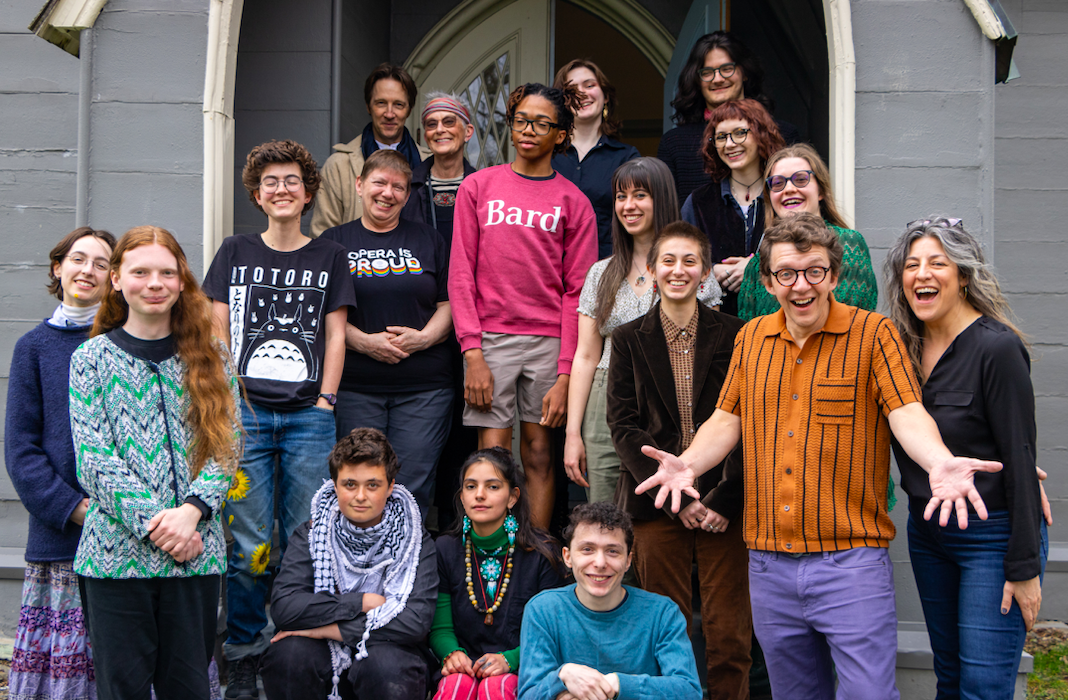 Christian Lehmann on the 2024 contest
Christian Lehmann on the 2024 contest
I was pleased to begin phase one of the second annual Bill Mullen Recitation Contest on April 9th at Bard High School-Early College, Cleveland where K. Parker took the top prize with their recitation of “Phenomenal Woman” by Maya Angelou. Judges at that stage were Nate Austin (director of admissions), Gwen Kinebrew (professor of biology), and Samuel Mineiro (Early College Fellow).
Meanwhile, at Bard College, Annandale, preparations were underway for the main event that would take place on April 19th. With an initial roster of 16 declamators (in Ancient Greece these performers were known as rhapsodes, ῥαψῳδός, where it was a profession to recite poetry), the day of the performance witnessed several substitutions and even a last minute addition to the roster by a graduating senior who thought she’d be unable to perform but was keen to participate after witnessing the event the previous evening.
Christian Lehmann on the 2024 contest
There are two aspects of the contest that stand out every year. The first is the incredible bravery of the students and the seriousness with which they take preparation for this event, the kind of event that Bill Mullen would have appreciated so very much. One of his passions was the act of memorizing and reciting poetry. But, importantly, memorizing poetry is not just for the self it is also an act of generosity and sharing. And that is what makes an experience like the Recitation Contest so exciting. It is an afternoon of marvelous communal gifting. Secondly, I marvel at the accidental anthology that an event like this generates. We don’t provide a theme for the students and so the choices students make stand beside one another, but not in isolation. I did not begrudge the judges their duties, but Ann Lauterbach and Thomas Bartscherer were finally able to come to a decision.
The poems ranged from familiar names like T. S. Eliot and Emily Dickinson, to some that are perhaps less well-known like Rajzel Żychlińsky and Don Marquis. Several performers chose poems that had been translated into English. A few patterns emerged that perhaps reflect the tumultuous world stage. Pati Dynes recited Pablo Neruda’s “The Dead Woman” in which the refrain “I shall live on” (yo seguiré viviendo) hauntingly echoes the responsibilities of a witness to global repression to speak out. Later in the afternoon, Gjon Rezaj performed “Anthem for Doomed Youth” by Wilfred Owen, a young poet who died in battle in 1918 at the age of 25.
Even the seemingly more comic poems resonated with the accidental themes that had emerged. Lydia Schultz’ choice of Don Marquis “Archy Turns Revolutionist,” a poem about a poetry-writing cockroach turned revolutionary anticipated Maria Flores’ “Revolutionary Letter #74” by Diane di Prima (a complete text of the Revolutionary Letters can be found here, #74 appears on page 101). Her arresting performance in which she punctuated the line breaks and spaces in the original poem with silence and physical shifts charged the air of Bard Hall and earned her the first place award. The juxtaposition of these two poems reminded me that philosophers and poets of revolution come in a variety of genres and tones.
One of the most stirring moments in the afternoon came when Sage Rudolf changed her submission and instead recited three minutes of martyr statements from recently deceased Palestinians. This act earned her the inaugural People’s Choice Award. Arinel Paddock’s performance of the Yiddish poet Żychlińsky’s “Samson,” which she also translated into English, garnered second place.
Once again the Hannah Arendt Center put on a marvelous event and I want to thank them, and especially Tina Stanton, Jana Mader, and Roger Berkowitz, for a perfect afternoon. A complete list of performers and poems appears below. -
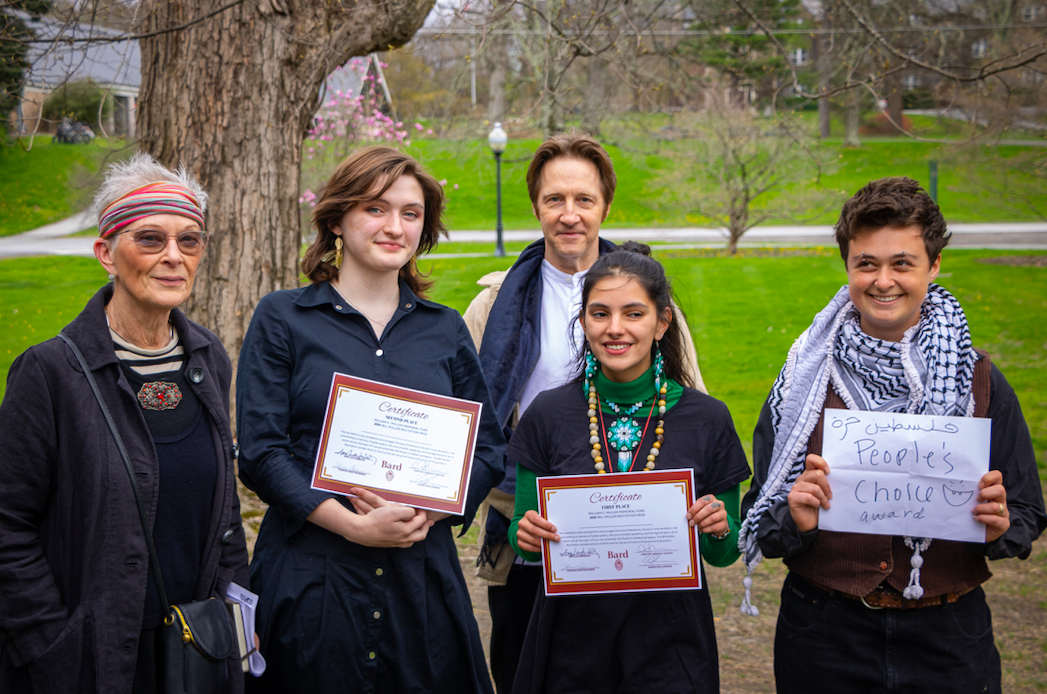 The Participants and their PoemsCongratulations to winners Maria Puente Flores (First Prize) and Arinal Paddock (Second Prize), as well as People’s Choice winner Ariella Brodie-Weisberg! Photo by Joseph Nartey ’26
The Participants and their PoemsCongratulations to winners Maria Puente Flores (First Prize) and Arinal Paddock (Second Prize), as well as People’s Choice winner Ariella Brodie-Weisberg! Photo by Joseph Nartey ’26
Full Participant List
Clarise Reichley: "This World is Not Conclusion" Emily Dickinson
Arinel Paddock: "Samson" by Reyzl Zhikhlinski
Pati Dynes: "The Dead Woman" by Pablo Neruda
Marylena Hono: "Civilization & Its Discontents" by John Ashbery
Ariella Brodie-Weisberg: "Planetarium" by Adrienne Rich
Abby Clement: "Preludes" by T. S. Eliot
Peter Barrie: "The Homeowner's Prayer" by David Berman
Grace Vining: "How Do I Love Thee? (Sonnet 43)" by Elizabeth Barrett Browning
Mica Rajakumar: "Mid-Term Break" by Seamus Heaney
Alexander Leonard: "The Love Song of J. Alfred Prufrock" T. S. Eliot
Artemis Frederick: "One Perfect Rose" by Dorthy Parker
Lydia Schultz: "Archy Turns Revolutionist" Don Marquis
Sage Rudolf: "Fantasy upon a gentleman who converted his impressions of a private house into cash" by Virginia Woolf
Regina Cassese: [All night I hear the noise of water sobbing.] by Alejandra Pizarnik, Trans. Forrest Gander & Patricio Ferrari
Gjon Rezaj: "Anthem for Doomed Youth" by Wilfred Owen
Maria Puente Flores: "Revolutionary Letter #74" by Diane di Prima
Annaliese Simons: "The Disease" by Muriel Rukeyser
-
 The Contestants & Their PoemsAthena Bason: "Dream Song 29" by John Berryman
The Contestants & Their PoemsAthena Bason: "Dream Song 29" by John Berryman
Milla Meiman: "Two-Headed Calf" by Laura Gilpin
Regina Cassese: "First Love by" Philip Levine
Ariella Brodie-Weisberg: "Planetarium" by Adrienne Rich
Yadier Perez: "Sweetest love, I do not go" by John Donne
Jonathan Asiedu: "Young Deer" by Hilda Morley
Nora Furlong: "A Woman Is Talking to Death" by Judy Grahn
Annaliese Simons: "Modern Love XXX" by George Meredith
Eugenie Sappho: "Even So" Dante Rossetti
Shanqiue Alladen: "Limbo" by Edward Kamau Brathwaite
Heather Garufi: "Homosexuality" by Frank O'Hara
Marylena Hono: "Civilization and it's Discontents" by John Ashbery
Jay Evans: "The Evasion" by Paul Blackburn
Tallulah Woitach: "The Love Song of J. Alfred Prufrock" by T.S. Eliot -
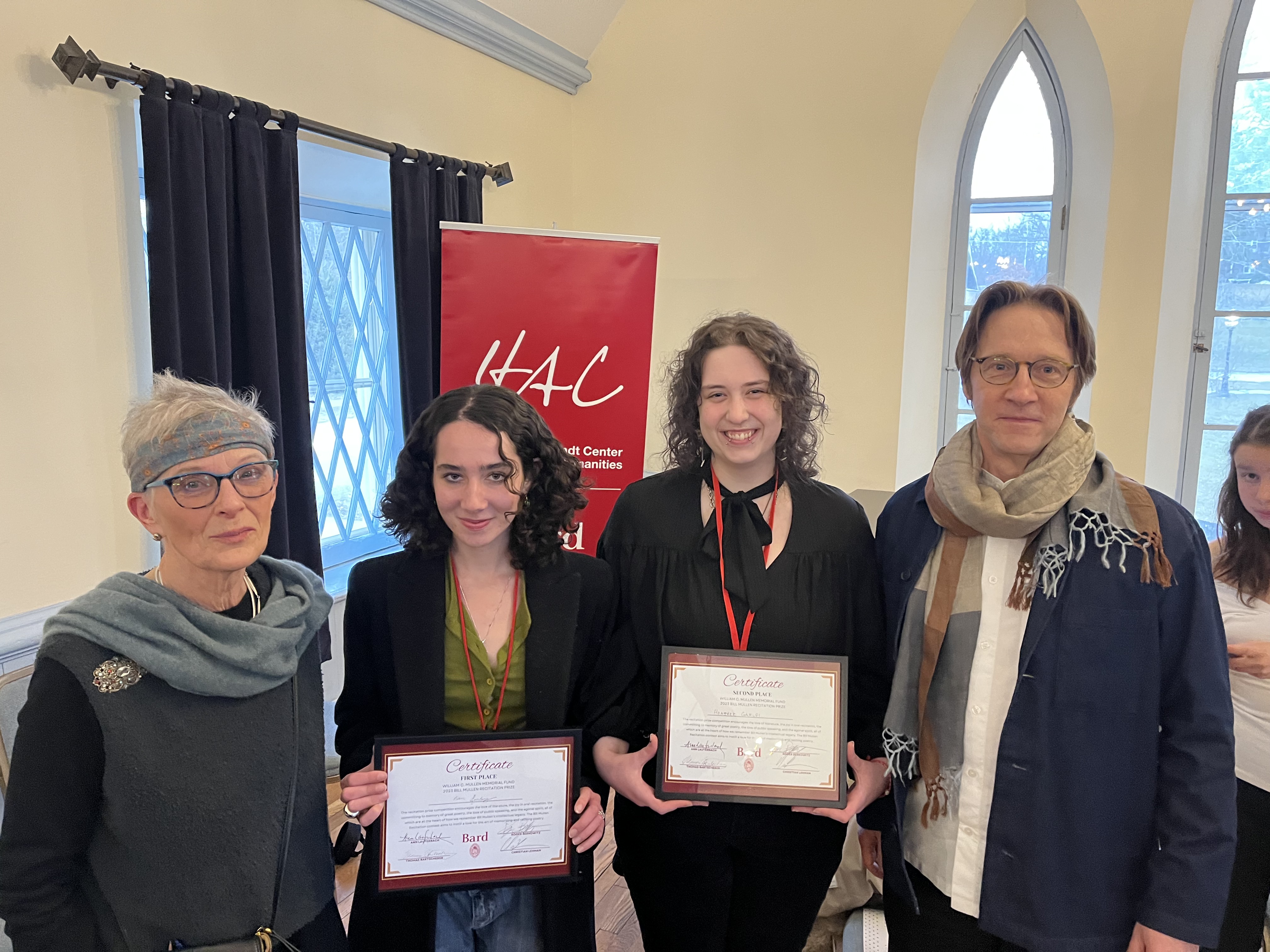 The Winners & Their JudgesNora Furlong took first place with her poem "A Woman Is Talking to Death" by Judy Grahn.
The Winners & Their JudgesNora Furlong took first place with her poem "A Woman Is Talking to Death" by Judy Grahn.
Heather Garufi won second with "Homosexuality" by Frank O'Hara.
Ann Lauterbach is a poet and essayist writing at the intersection of poetics, politics and the visual arts. A recipient of a Guggenheim Fellowship (1986) and a MacArthur Fellowship (1993), she is Ruth and David Schwab Professor of Languages and Literature (Written Arts) at Bard College.
Thomas Bartscherer is the Peter Sourian Senior Lecturer in the Humanities at Bard College. He writes on the intersection of literature and philosophy, with a particular focus on tragic drama, aesthetics, and performance. He also writes on contemporary art, new media technology, and the history and practice of liberal education.







